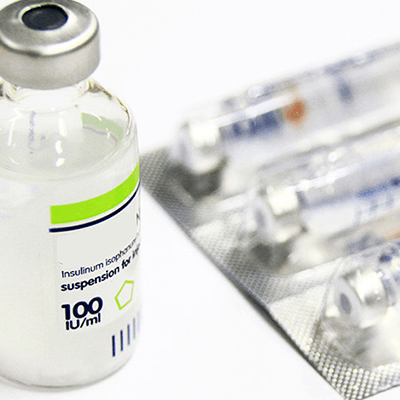Managing Diabetes Complications: Foot Problems
Proper foot care is an important part of a person with diabetes’ daily routine. High blood glucose levels can damage the blood vessels that carry oxygen and nutrients to the legs and feet. This can lead to nerve damage, poor circulation, infections and foot deformities. Diabetes is often associated with foot problems and amputation. Not including those caused by accidents or trauma, more than 60% of lower-limb amputations performed each year are on people with diabetes. 1 What to Look For The Canadian Diabetes Association recommends that your feet be examined at least once a year—more often if...
Read MoreInsulin Injections: Breaking Down The Barrier
If insulin injections are part of your daily life, you know how essential they are to managing your diabetes and preventing complications. You also know that following your injection schedule is crucial. If your body doesn’t get enough insulin over the long term, you risk developing serious problems with your eyes, heart, nerves and kidneys. Getting too much insulin could lead to hypoglycemia—extreme cases of which can cause diabetic coma. Despite all this, according to a study conducted in the US, over half of people with insulin-dependent diabetes have deliberately skipped injections at some point. Around 20% do it...
Read MoreInsulin: A New Beginning
After living with diabetes for several years, you’ve just been prescribed an insulin treatment. You probably have many questions—perhaps even fears or misgivings. This is completely normal. In any event, here are three preconceived notions you can discard right now. 1. Transitioning to insulin means I managed my diabetes incorrectly. Wrong. Diabetes is a progressive disease. Despite all your efforts and good will, it may just be that your pancreas is no longer able to cope. 2. Insulin therapy is a last-resort treatment. Wrong....
Read MoreInsulin Injections: Breaking Down The Barrier
If insulin injections are part of your daily life, you know how essential they are to managing your diabetes and preventing complications. You also know that following your injection schedule is crucial. If your body doesn’t get enough insulin over the long term, you risk developing serious problems with your eyes, heart, nerves and kidneys. Getting too much insulin could lead to hypoglycemia—extreme cases of which can cause diabetic coma. Despite all this, according to a study conducted in the US, over half of people with insulin-dependent diabetes have deliberately skipped injections at some point. Around 20% do it...
Read MoreInsulin: A New Beginning
After living with diabetes for several years, you’ve just been prescribed an insulin treatment. You probably have many questions—perhaps even fears or misgivings. This is completely normal. In any event, here are three preconceived notions you can discard right now. 1. Transitioning to insulin means I managed my diabetes incorrectly. Wrong. Diabetes is a progressive disease. Despite all your efforts and good will, it may just be that your pancreas is no longer able to cope. 2. Insulin therapy is a last-resort treatment. Wrong....
Read More


